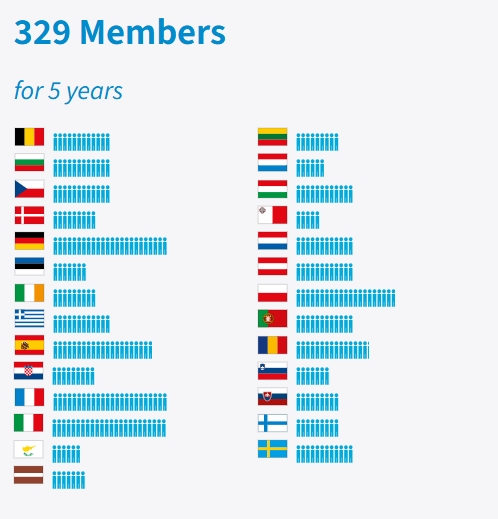To the general public, the EESC may seem like just one more consultative body within the European Union’s (EU) complex and somewhat chaotic ecosystem. In reality, however, the EESC (European Economic and Social Committee) serves as a crucial gateway through which civil society members can make their voices heard and potentially impact EU legislation.
Boasting ‘big wins’ in shaping EU legislation, EESC President Oliver Röpke tells To Vima International Edition how the EESC punches above its weight to support the EU’s employers, trade unionists, and representatives of social, occupational, economic and cultural organizations.
The EESC: Bridging the Gap
When asked how the EESC is working to strengthen democracy within the EU, Röpke emphasizes the “pivotal role of the EESC in bridging the gap between the Brussels bubble and citizens and civil society in the member states.”
Armed with an annual administrative budget of around 152 million euros, the EESC coordinates 329 members divided into thematic groups, observatories, a commission and other bodies to turn out between 160 and 190 opinion and information reports a year.

EESC’s 2023 members were nominated by their governments and appointed by the EU Council for a five-year independent term.
The EESC has existed since 1957 and is enshrined in the EU’s treaties, says Röpke, “We have the right to give our opinions on all the draft laws of the European Union. But I think equally important is that we can also make strategic proposals where we see European policies in two, three, five years. And this is what we are doing more and more.”
Combatting the Far Right & Populism
When asked about the rise of the far right in Austria, his home country, and in other parts of Europe, Röpke replies, “I am deeply concerned about this development […] I think it should be a warning, really a wakeup call for us.”
For Röpke, it is indicative of a growing dissatisfaction among citizens and a loss of trust of EU institutions. “I think now is really the crucial time where we need the involvement of civil society.”
He believes that both the EU and the EESC must do everything they can to regain that trust. “Citizens’ involvement can help to increase trust in the long term. But it won’t work from one day to the other. And there’s no guarantee.”
Röpke also points out that citizens across the EU are grappling with a cost of living crisis and many can’t get by on their salaries. This crisis is generating resistance to the Green Transition. If we don’t address these social issues, “I am worried that this voice of populist parties will continue, and it will become the new norm.”
Beyond inflation, Röpke highlights another major challenge: migration. “We need migration, but of course we need a migration that is managed in a smart way.” And according to Roptke, there is a consensus in Austria on this point between social and political actors, trade unions, and the Chambers of Commerce and of Economics.
But Röpke stresses that migrants must be properly integrated into the labor market. If they aren’t, “it adds additional pressure on the existing labor market, and fuels racism and xenophobia among employees who are losing their jobs to migrants.” He reveals that in Austria, fewer than half of the migrant employees in construction are being paid minimum wage, leading to unfair competition and leaving workers vulnerable.
A Light at the End of the Tunnel
Fortunately, the EESC President sees positive impact outcomes from the EESC’s work. He cites the EU’s minimum wage directive, which he calls “their flagship initiative.” The directive calls for fair minimum wages across the EU and promotes collective bargaining.
Röpke also highlights the EESC’s recent ‘blue deal’ proposal, which advocates for a more coherent water strategy at the EU level, particularly in sectors like agriculture and industry. This proposal comes at a critical time, especially for countries like Greece, which has faced severe droughts this year.
Finally, the EESC is operating beyond the EU’s borders, working in accession countries to “empower civil society, and establish proper social dialogue.” Röpke says the EESC has learned valuable lessons from past enlargement processes and has appointed an enlargement commission with members from all nine candidate countries. The enlargement members work alongside the EESC to formulate opinions on issues like cohesion and agricultural policy.
What Röpke finds most encouraging is that “Civil Society has been waiting for this and is urging us to move forward.” In his view, greater engagement with civil society strengthens the Rule of Law and fundament rights in these countries.
Overall, Röpke remains optimistic. He notes that many citizens, institutions and social actors around the world look to Europe as a role model. And when social actors are strong in Europe and globally, societies can push back against authoritarian tendencies.
EESC’s 2023 members were nominated by their governments and appointed by the Council of the European Union for a period of five years to work independently, in the interests of all EU citizens.


